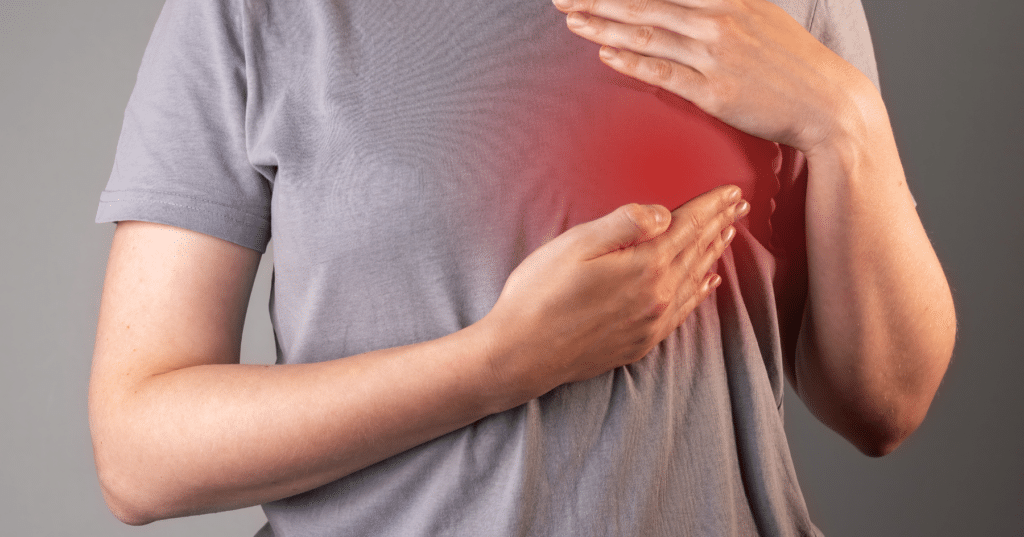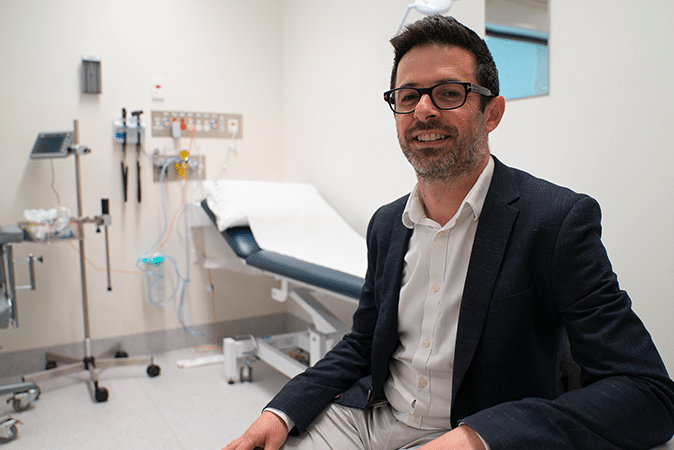Fungating Breast Tumour
What is a Fungating Tumour
A fungating breast tumour is an advanced form of cancer that leads to the development of ulcers or infection on the skin of the breast or its vicinity. This type of tumour emerges when the cancerous mass breaks through the skin, resulting in the formation of a wound or ulcer characterized by leakage, an unpleasant odour and pain.
Fungating tumours are rare , and if they do develop, they are more likely to occur with skin cancer, breast cancer, or head and neck cancer, as these cancers can occur close to the skin. Approximately 2-5% of locally advanced breast cancers develop into a fungating breast wound.
Causes of Fungating Breast Cancer
Larger breast tumours can grow to a point where they break through the skin and form an ulcer. In some cases, the tumour can initially grow undetected and present with ulceration. However, most times the tumour is neglected and grows to this point.
If left untreated for months or years, this can grow upwards giving the characteristic appearance of a fungating breast tumor. Fungating tumours can occur in two different ways, including:
Primary Tumour:
Primary tumours develop from cancerous breast cells. When a primary tumour becomes ulcerative, it means the breast cancer cells have penetrated the skin and caused the lesions or ulcers to occur.
Secondary Tumour:
Secondary tumours spread from another site of cancer other than the breast. The cancer cells originate in a different organ and spread through the blood and lymphatic system into the breast. This is a rare occurrence.
What Stage of Breast Cancer is Fungating?
In breast cancer, TNM staging is commonly used. Fungating tumours are commonly found in more advanced stages of breast cancer, including stages 3 or 4. At these stages, the cancer has often spread to nearby tissues or distant organs and is harder to treat. However, there can be some exceptions to this.
- Stage 3: The cancer is often larger and can be found in more lymph nodes and/or invasion of the chest wall or skin around the breast, but the cancer has not spread to the bones or organs.
- Stage 4: Breast cancer can now be found in other parts of the body, having spread through lymphatic channels or the bloodstream, from the breast and lymph nodes. The most common sites are bones, lungs, liver, and brain. The cancer is now considered metastatic or advanced.
What are the Symptoms of Fungating Breast Cancer?
A fungating tumour can start as a shiny, red lump on the skin. If the lump begins to break down, this can look like a sore, and the wound might get bigger if left untreated. In more serious cases the tumour can spread into the surrounding skin, or grow deeper into structures of the chest wall, such as muscle and bones, and form holes.
Fungating tumours can cause a variety of symptoms, in addition to any symptoms that the underlying cancer may cause. These can include:
Unpleasant Smell
A distinctive symptom of fungating breast cancer is the presence of an unpleasant odour coming from the open wounds or ulcers.
Visible Tumour Growth
Fungating breast tumours cause significant changes in the appearance of the breast, and patients may visibly notice the tumour growth outside of the skin’s surface.
Pain, Discomfort and Bleeding
The presence of open wounds, infiltration of surrounding tissues, and nerve damage from the advanced tumour can contribute to persistent pain. These tumours can lead to the development of open wounds that leak fluid or blood as a result of damaged skin from the tumour growth.
This can further contribute to the overall physical and emotional burden experienced by individuals with fungating breast cancer. Therefore, treatment is often focussed on alleviating pain and bleeding to improve quality of life. Patients can experience some physical and psychosocial side effects due to the complications associated with fungating breast cancer. Receiving social and psychosocial support is an essential component of treatment.
Who Does Fungating Breast Cancer Affect?
Fungating breast cancer primarily impacts those with more advanced stages of breast cancer. Patients who have not received timely medical intervention, or who have experienced disease progression despite undergoing treatment, are at a higher risk of fungating breast cancer.
Life Expectancy with Fungating Breast Cancer
A patient’s life expectancy can vary depending on factors such as:
- the stage or type of cancer
- a patient’s overall health
- the effectiveness of available treatments
It is not always possible to prevent a fungating tumour from occurring. However, early detection and treatment of a tumour may help. In general, the larger the tumour grows, the more likely it is to penetrate the skin and cause ulceration. However, even small tumours can cause ulceration. A person should consider getting regular screenings and talking with their doctor about any unusual lumps.
Unfortunately, fungating breast cancer often occurs in larger, more advanced stages of breast cancer, which may negatively impact overall life expectancy. Your treating doctor or cancer specialist will discuss treatment options with you, and in some cases, the potential for palliative care can influence outcomes.
Treatments and Care for Fungating Wounds
Treating breast cancer often involves a multimodality approach, and managing fungating breast cancer involves addressing the symptoms and providing supportive care to enhance the individual’s quality of life. Treatment options can include:
-
Surgery
It may be possible to undergo surgery to treat your fungating wound. But it will depend on the size and position of the tumour. It is important to note that this is not possible for everyone, as fungating tumours can damage blood vessels which can make surgery difficult to do.
-
Chemotherapy
Chemotherapy is used to help shrink the tumour and reduce any symptoms. Chemotherapy is sometimes used in combination with targeted cancer drugs.
-
Radiotherapy
Doctors often use radiotherapy to treat fungating (ulcerating) tumours. Ulceration could seem worse in the beginning when you have radiotherapy. This is because the cancer cells die off. You might have a mild skin reaction to the radiotherapy, which causes redness and dry, flaky skin.
-
Hormone Therapy
Your doctor might recommend hormone treatment if your primary cancer responds to hormones. For example, if you have oestrogen-receptor-positive breast cancer. Hormone therapy can help to shrink the ulcerating tumour and slow down its growth.
Another key component to the treatment of fungating breast cancer is appropriate wound management. This can include:
- Wound Care: Specialised wound care is crucial in managing the open wounds associated with fungating breast cancer. This may involve regular cleaning, dressing changes, and addressing infection to minimise discomfort and odour. Additionally, you may be provided with ointments for home use.
- Pain Management: Pain management strategies, including medications and other interventions, are essential to alleviate the persistent pain associated with fungating breast cancer.
- Palliative Care: Palliative care plays a significant role in enhancing the overall well-being of individuals with fungating breast cancer. It focuses on relieving symptoms, improving quality of life, and providing emotional support for both patients and their families. If you have any questions about palliative care or are looking for more information for yourself or a loved one, we recommend discussing this with your doctor or GP. Please note that palliative care involvement is only if the cancer is considered incurable.
Support for Fungating Breast Tumour Patients
Individuals who are living with this type of disease are not alone. It is normal to feel scared or stressed after receiving a breast cancer diagnosis, and it can often be difficult to process the strong emotions that this disease can cause. Many people require extra support from family, friends, or loved ones to help them through this difficult time.
Medical Support
Effective communication and collaboration with your medical team, including oncologists, nurses, and palliative care specialists is essential to ensure comprehensive care, symptom management, and ongoing support for both the patient and their caregivers.
Psychological Support
Counselling and psychological support can help individuals cope with the emotional burden of fungating breast cancer, as well as provide strategies to support the patient and their family during this difficult time. This support may involve individual or group therapy to address emotions such as anxiety, depression, fear, anger, denial, repulsion, low self-esteem and isolation, all of which are valid and common emotions for patients.
Community Resources
Connecting with local cancer support groups and organisations, and utilising support resources can help to provide valuable information and a sense of community for individuals dealing with fungating breast cancer. These groups may offer practical assistance, expert knowledge, and a platform for sharing experiences.
Family and Friends
The best support you are likely to receive is from your close family and friends. Some people might choose not to share too much with relatives and friends. However sharing your feelings can bring relief to you as well as your loved ones, and it’s important to communicate openly and honestly so that those around you can offer support during this difficult time.
Donate to Breast Cancer Trials
Your donation can make a significant impact in funding crucial clinical trials, exploring innovative treatments, and ultimately improving outcomes for individuals affected by breast cancer.
Support the Breast Cancer Trials research program, and save lives.



